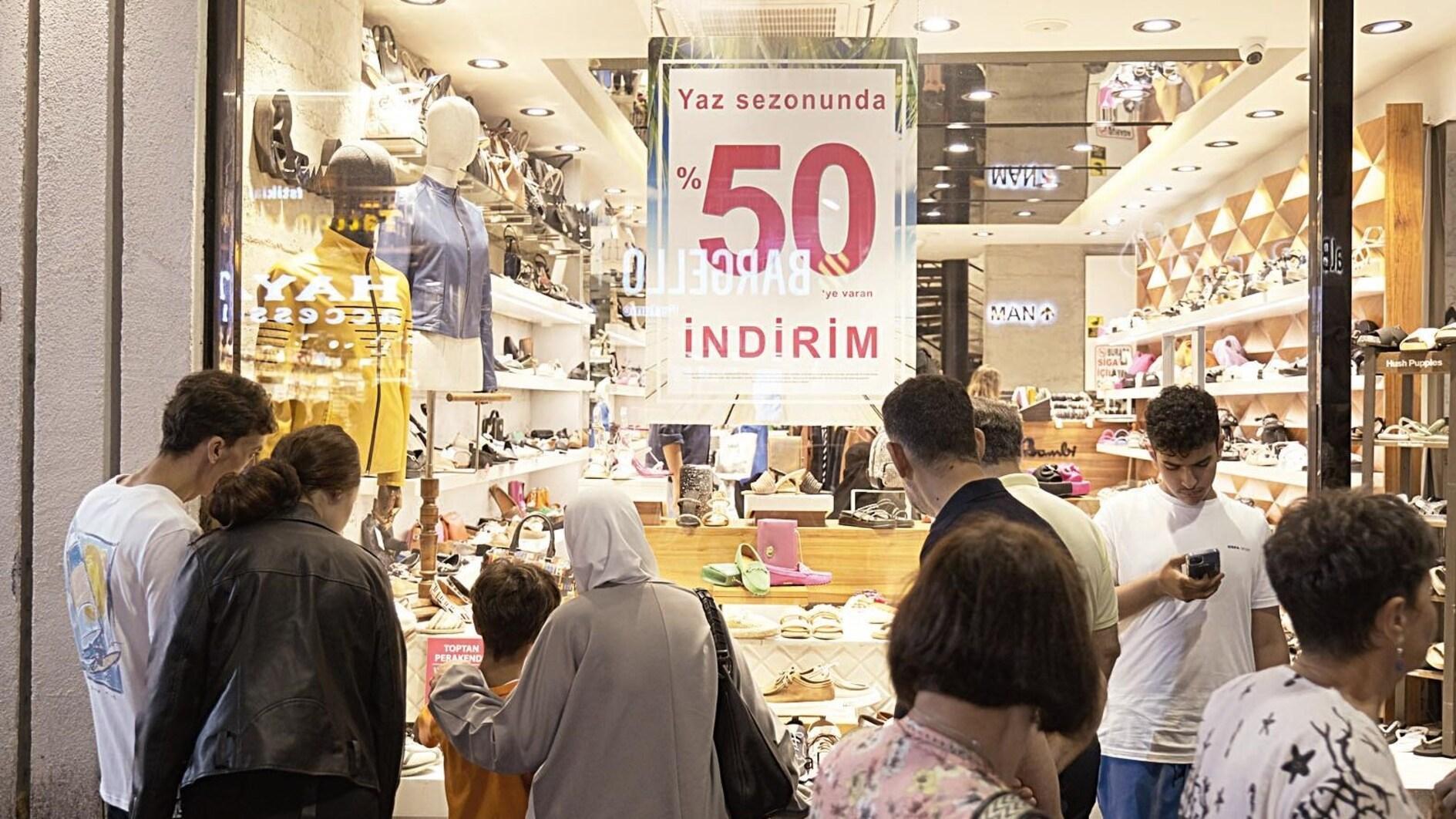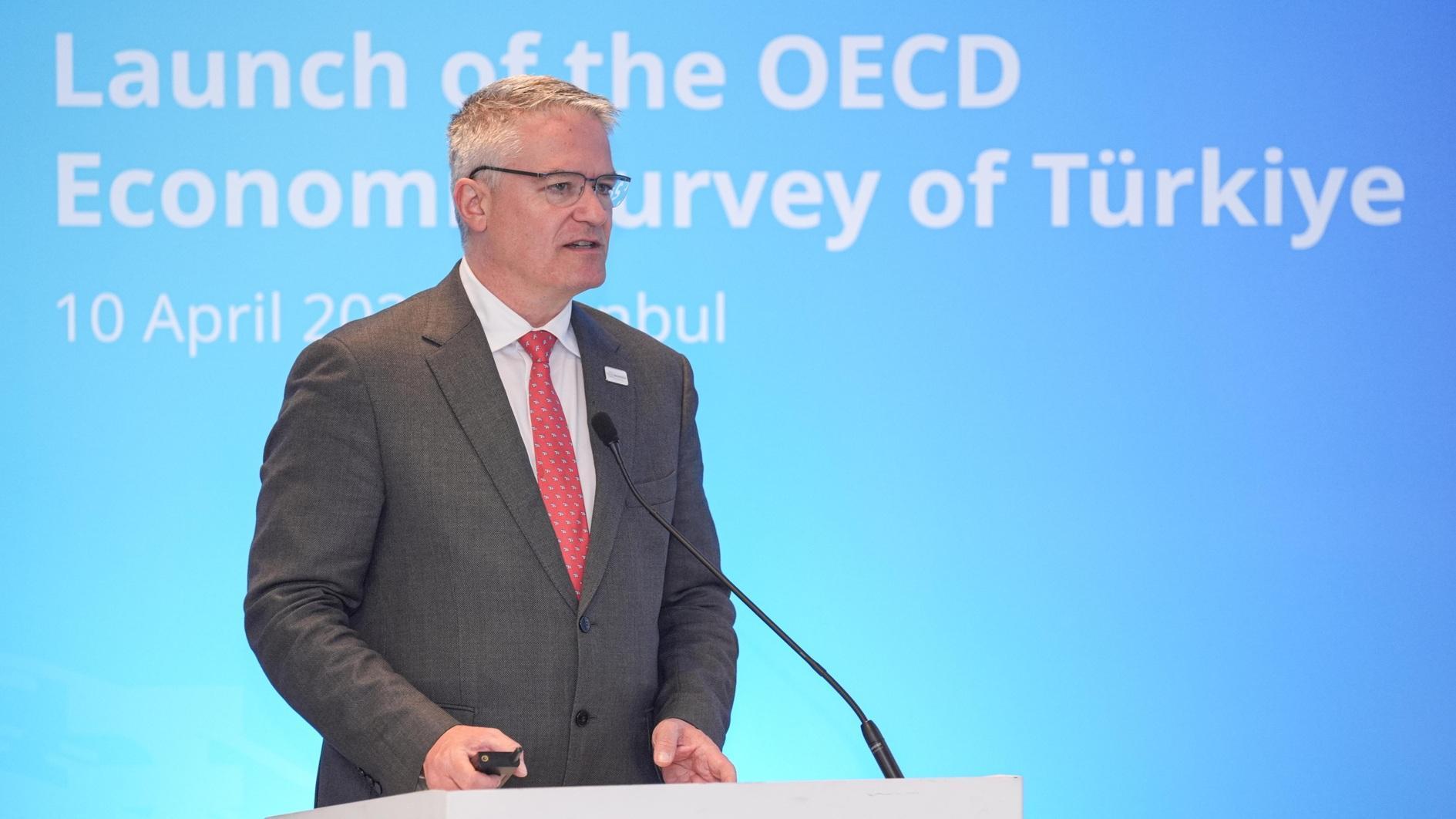COVID-19 proves as catalyzer in e-commerce in Turkey
Barçın Yinanç-ISTANBUL

Alamy Photo
E-commerce, which has shown a tendency to grow before the COVID-19 that swept the world, experienced a sharp rise in the first two months of the outbreak and the pandemic accelerated the transformation of e-commerce according to Nielsen Turkey CEO Didem Şekerel Erdoğan.
What are the reflections of the COVID-19 pandemic in the food retail industry?
The growth in the FMCG (fast moving consumer goods) sales, which was 20 percent before the pandemic, went up to 37 percent.
In general, e-commerce in Turkey was already rising even before COVID-19 and has performed a strong growth in the country in recent years. Online retail sales recorded 43 percent of value growth in 2019, compared to the previous year.
Coming to 2020, e-Commerce on FMCG categories were already growing fast, with 57 percent growth in the pre-COVID-19 period; it tripled to 183 percent in the first eight weeks of the pandemic.
So, actually COVID-19 is an accelerator for the e-commerce transformation. We see these in personal care, home care, especially in baby food but also for tea and coffee categories.
Turkey has never introduced total lockdown for more than four days and even then consumers were allowed to walk to the nearest market. How do you explain this rise?
Retailers in Turkey were already on a digital transformation journey. They were investing more in e-commerce. With the pandemic, we suddenly started having conference calls, working from home. COVID-19 became a catalyst to more use online from all perspectives.
The Health Ministry’s “stay at home” campaign was successful. Our consumers followed the trends. It was rather preferred to have less contact, more social distancing; therefore, we believe that with the already digitalized transformation, Turkish shoppers were open to buying online.
In our research, 37 percent of the consumers said they are shopping online more often during COVID-19. When I compare this with other countries like Poland, Italy and Germany, it is significantly higher.
When it comes to digitalization and technology adaptation, Turkey seems to be far ahead than Europe.

Is this going to be permanent?
In terms of goods, beverage and home care, for instance, 41 percent said their online shopping frequency during the pandemic has risen; of those 49 percent said their choice of buying food, beverage and home care online will not change in the medium to the long run. We will experience in Turkey the omni-channel shopping behavior.
Brick and mortar stores will still remain important. To go to shop, to taste, to have a feeling of a product, to have the choice in front of them and to have the store experience will still be relevant for some groups along with the digital and technological transformation.
What are the changes in the consumer trends you detected in Turkey?
One striking trend that we observed globally is the increase in home cooking during the pandemic period. Turkey is leading the way in Europe in terms of home-cooking trend, with 80 percent of consumers claiming they started to cook and eat more at home during the epidemic. The rates for Italy for example is 74 percent, Spain 60 and Germany 45.
How do you explain this?
I think Turkish women love to cook and serve their families. We have larger families in Turkey. Turkish consumers also love to cook traditional meals and even cook their own bread. We have seen a significant increase in the sale of yeast.
How will this affect the rising trend to eat outside, which we have seen in the past decade?
One third of the Turkish consumers said their eating out habits will not go back to the same level as before the outbreak. There is still the fear, but in time this might change.
Other changes in consumer habits?
Media usage is another area where Turkey differentiates from the rest of the markets. During the epidemic period, 94 percent of Turkish consumers said they are checking the news and updates multiple times a day whereas this ratio is 74 percent in Europe in average and 75 percent globally.
Apart from the frequency, also the variety of the sources used in Turkey is higher than the average.
We are using TV news (82 percent) and social media (70 percent) more than European consumers and, unlike other European countries, the sources related with Ministry of Health also emerge as part of the most popular source of news in Turkey with social media accounts of Minister of Health being checked by 54 percent of Turkish consumers.
Also 53 percent of consumers are checking the updates on institutional websites of the Health Ministry.
How do you explain this difference?
I think the health minister is very active in sharing updates. He made statements almost every day. Educative guidance has been provided to the entire population and these were closely followed by consumers. Both in Turkey and Europe TV comes first, followed by social media. Online search engines come third in Europe whereas in Turkey it is the website of the Health Ministry.
What will be the new normal in terms of the shopper behavior?
There will be three accelerators shaping the consumer trends across globe. The first is quality and efficacy. Shoppers will tend to gravitate towards the brands focusing on hygiene and health benefits in their communication. Health, hygiene and immune will be the three keywords in medium to long term in shoppers’ agenda.
The second accelerator will the rise of the local. We predict that shoppers’ focus on buying local brands will increase in the new “normal.” This should not be read as only local brands will be on the rise but highlighting local production and farming, usage of local ingredients or any other relevant reference to the “local” will help brands to win in the new reality.
Last but not least: Digitalization. Some 76 percent of Turkish shoppers claim that they are willing to use auto shopping subscription services. The Europe average is 54 percent. In Turkey, 70 percent of shoppers state that they are willing to use AR/VR supported contactless applications, while the Europe average is 69 percent.
Can you summarize your analysis with respect to Turkish consumers?
First of all, for some time, home cooking will be atop the agenda. Second comes hygiene. Turkish consumers are very much focused on 360-degree hygiene, personal hygiene, family hygiene and household hygiene. Turkish shoppers will look further for healthful products; those with a key focus on strengthening immune system and products that may contain spices like ginger or turmeric for instance. And there will be an omni-channel buyer in front of us.
For that, it will be local production and local farming. These will be key for that for the Turkish consumers as well. It can be a global brand but with local production etc. So, it is more about the local sourcing which will be, I think, the key. I can say home cooking will be the key. Local sourcing, local agriculture forming and local production will be the key. Quality and efficacy will be key. Hygiene will be the key as well as digitalization and omni-channel shopper behavior.
*Who is Didem Şekerel Erdoğan?
Didem Şekerel Erdoğan is Nielsen VP for the retailer group covering 40 countries of Eastern Europe, Middle East, Africa, and Russia in addition to her current Turkey Nielsen CEO responsibilities.
She is a member of the Nielsen Global Retail Board, as well as a board member of AmCham Turkey.
Erdoğan has 20+ years of extensive FMCG local and international marketing and market research experience.
















